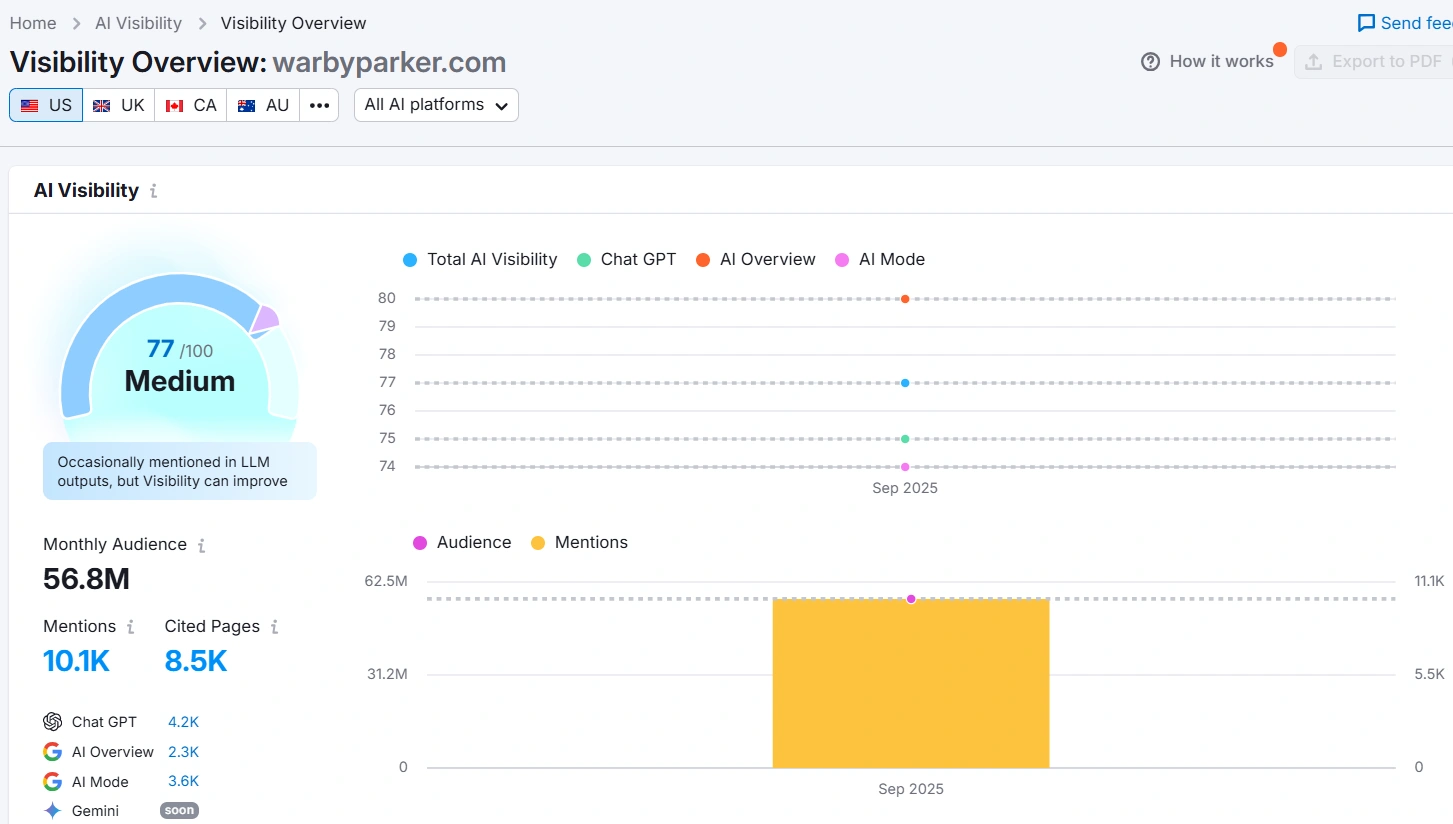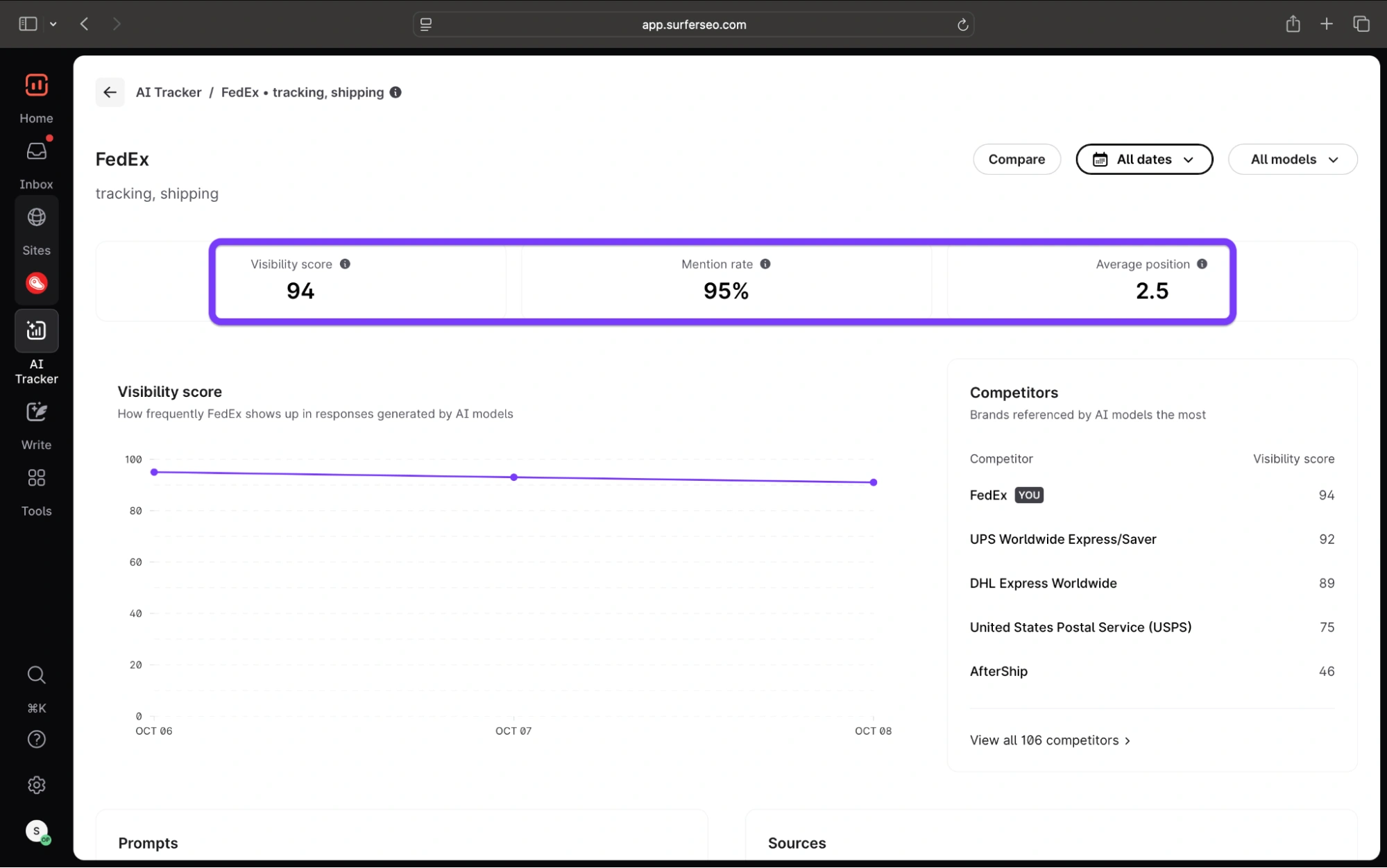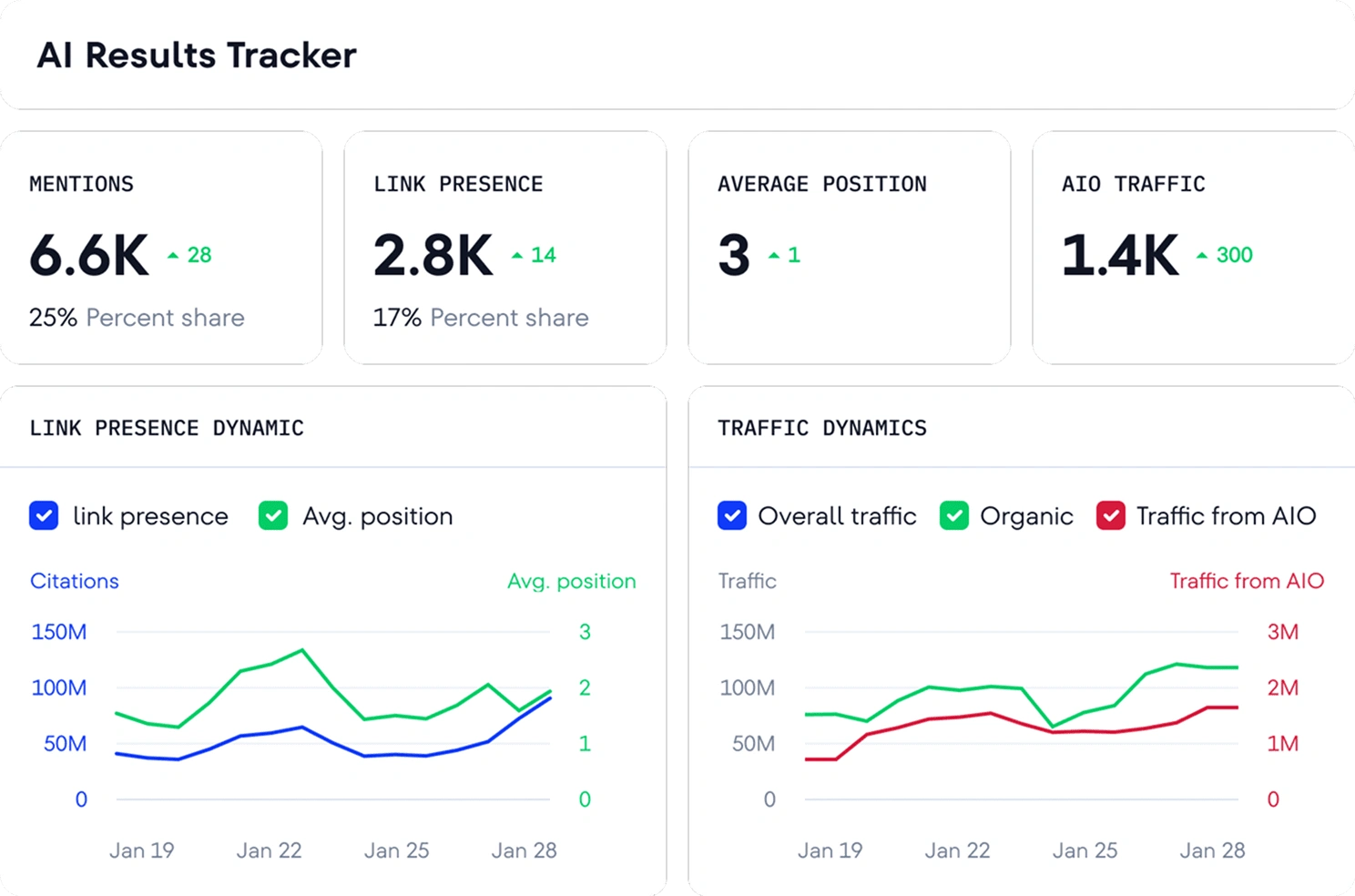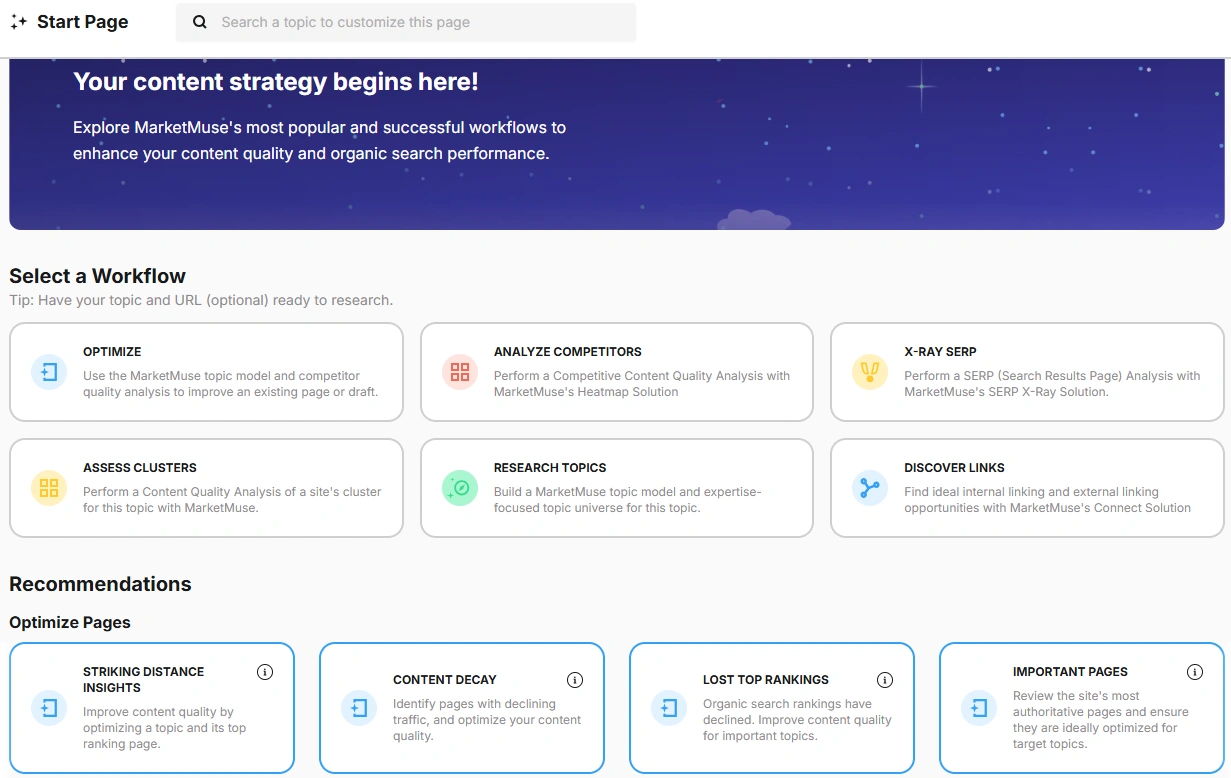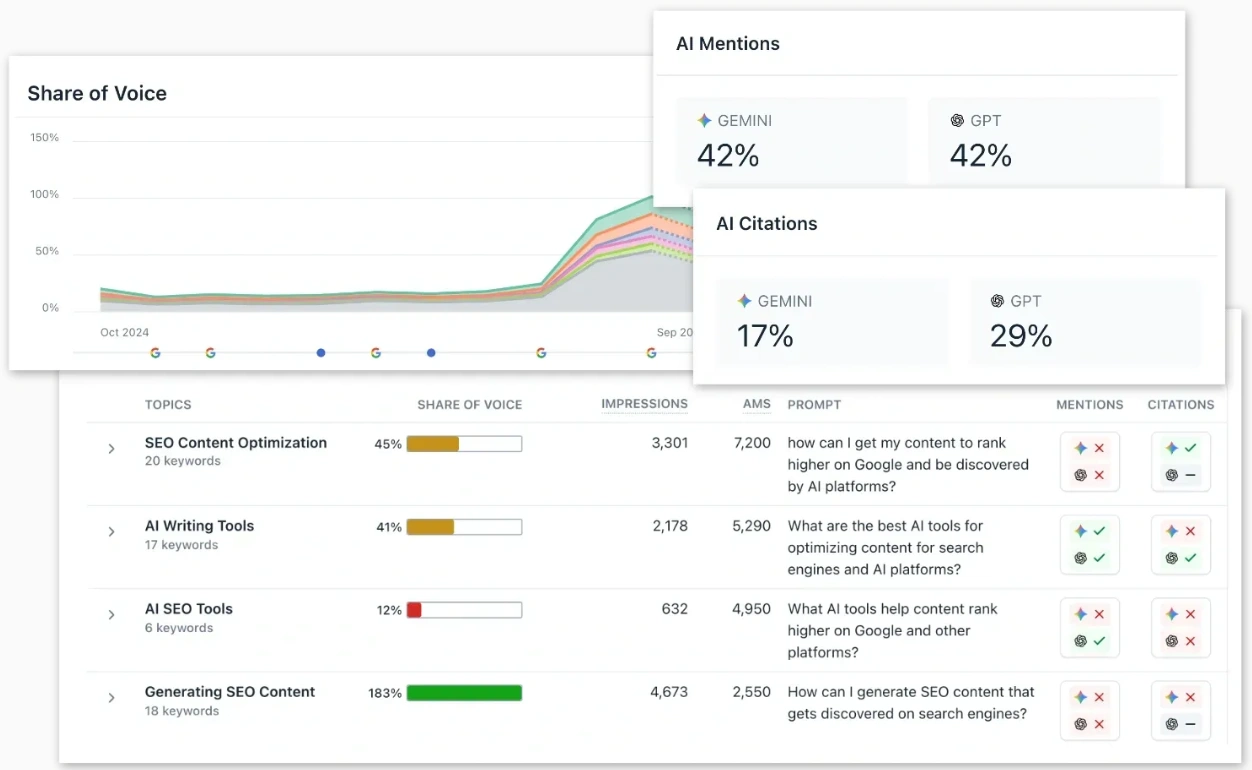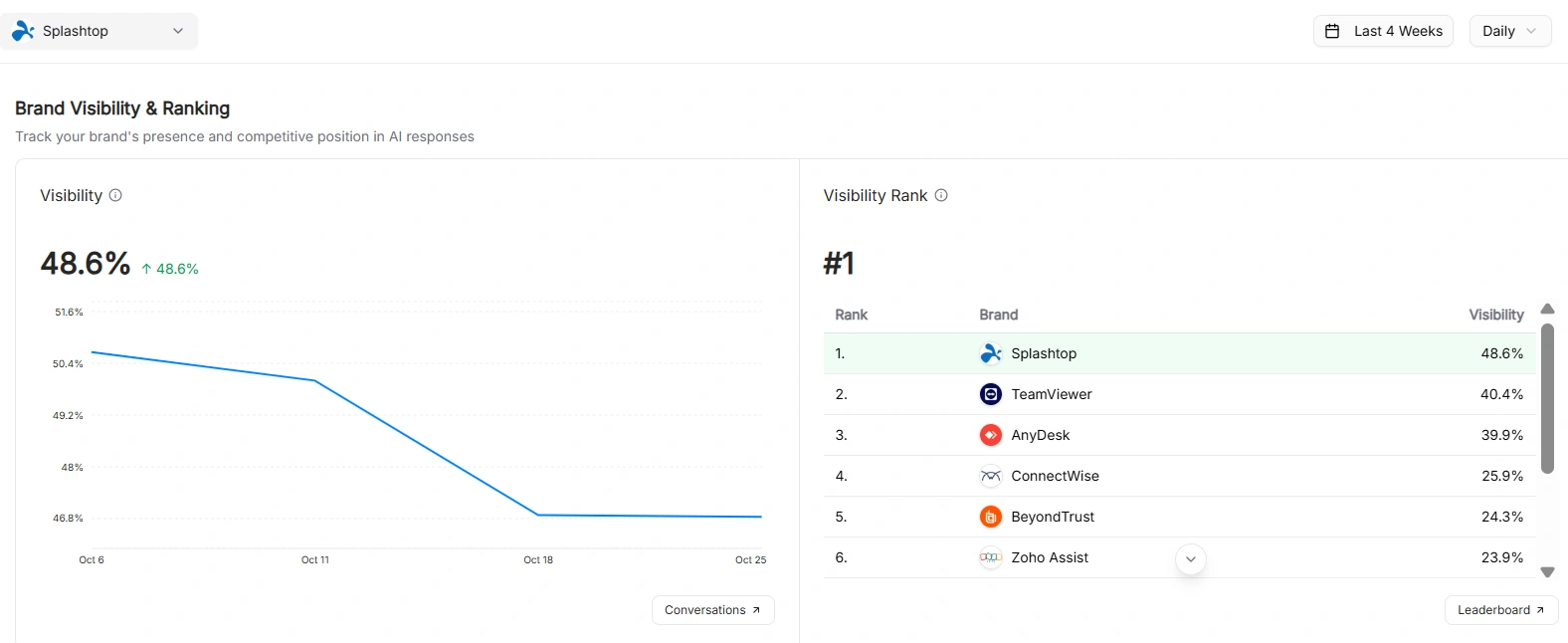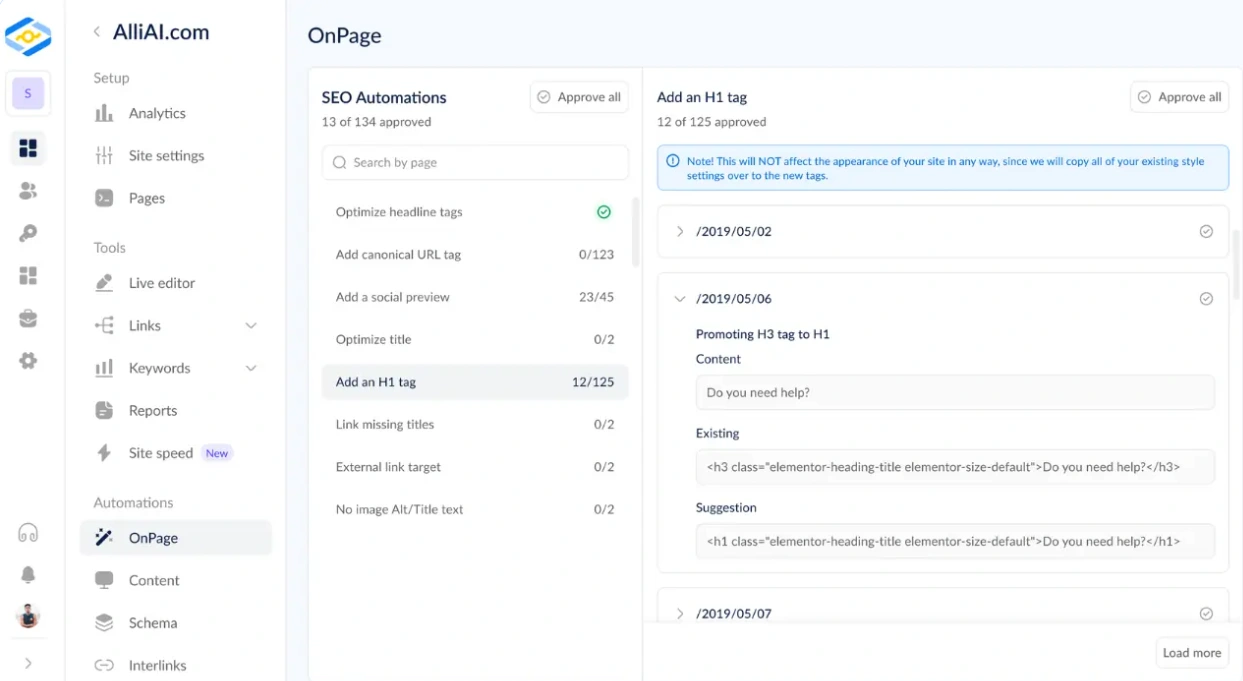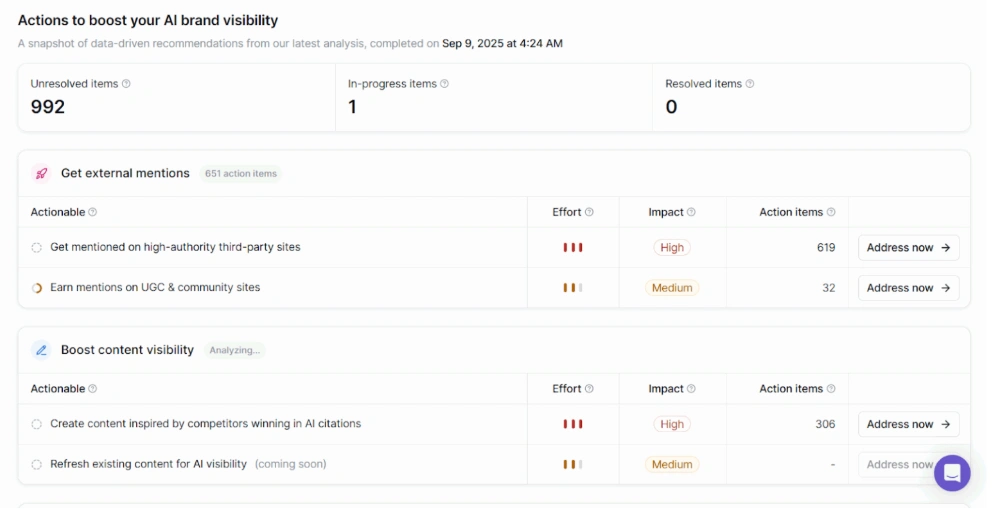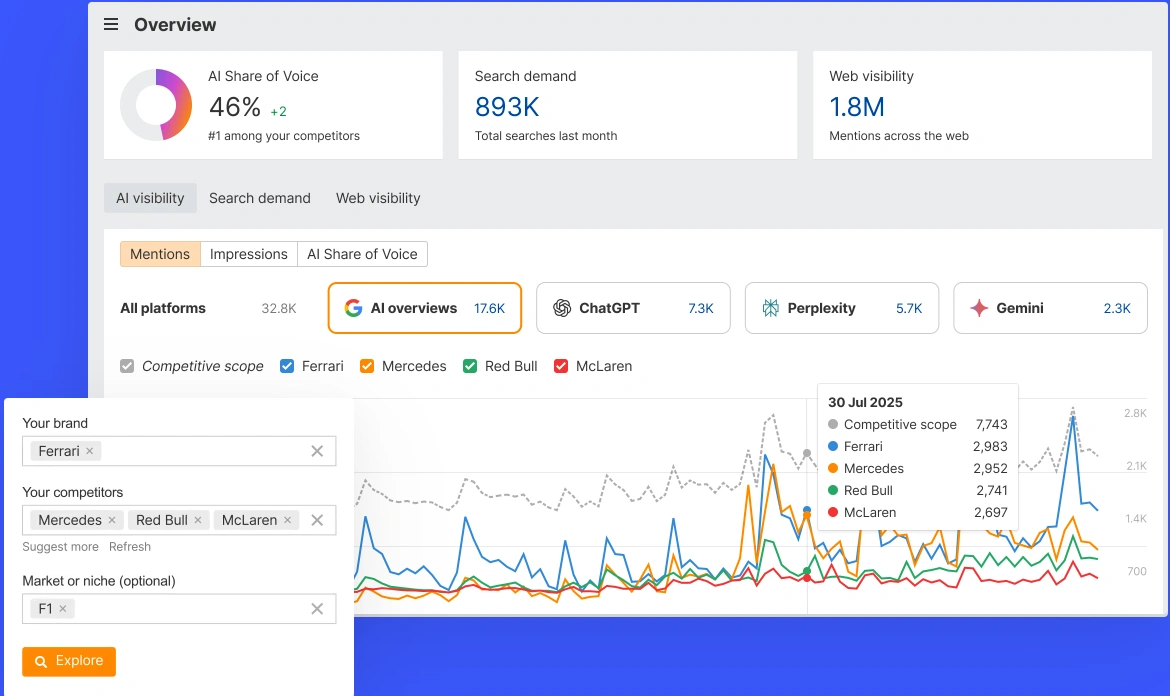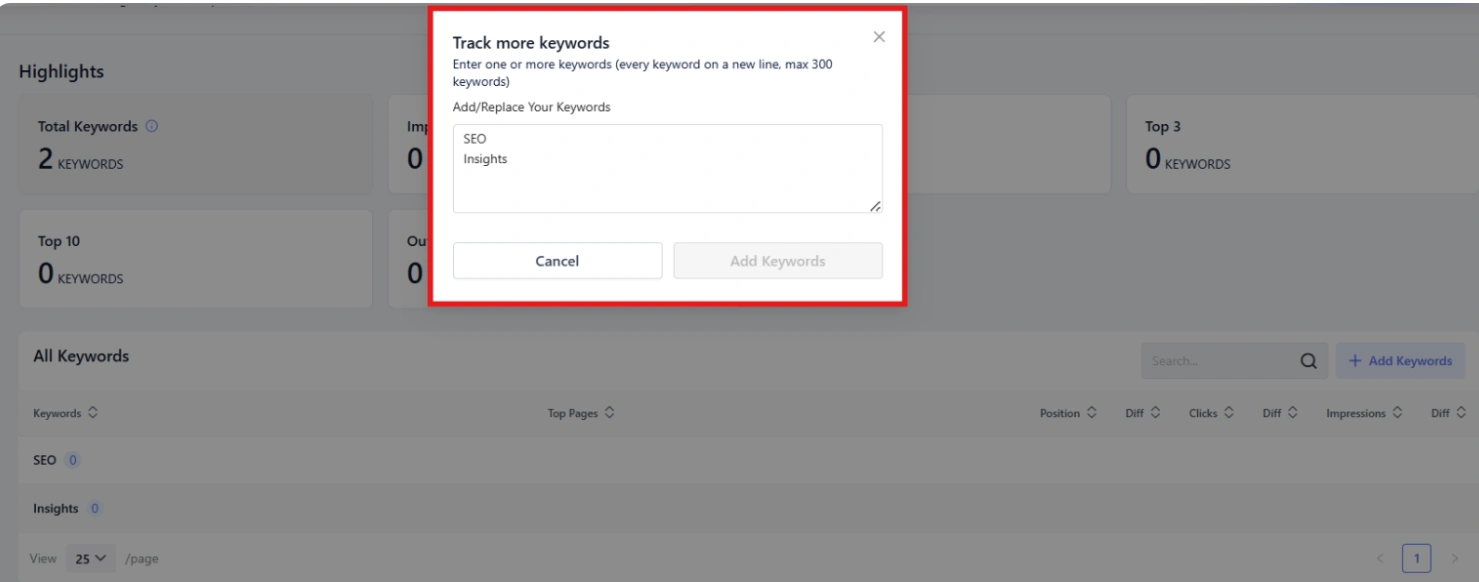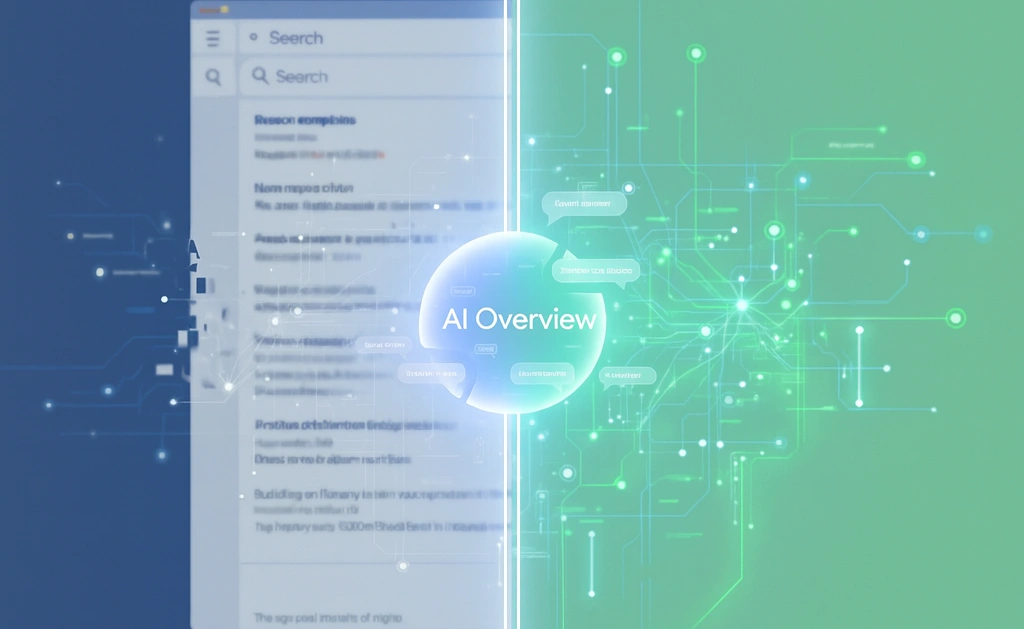To generate leads for a startup in the aviation sector is not easy. We threw the challenge at LeadWalnut and results far exceeded expectations. Umfawned the project and created impactful digital assets.


10 Best AI Search Optimization Tools in 2026
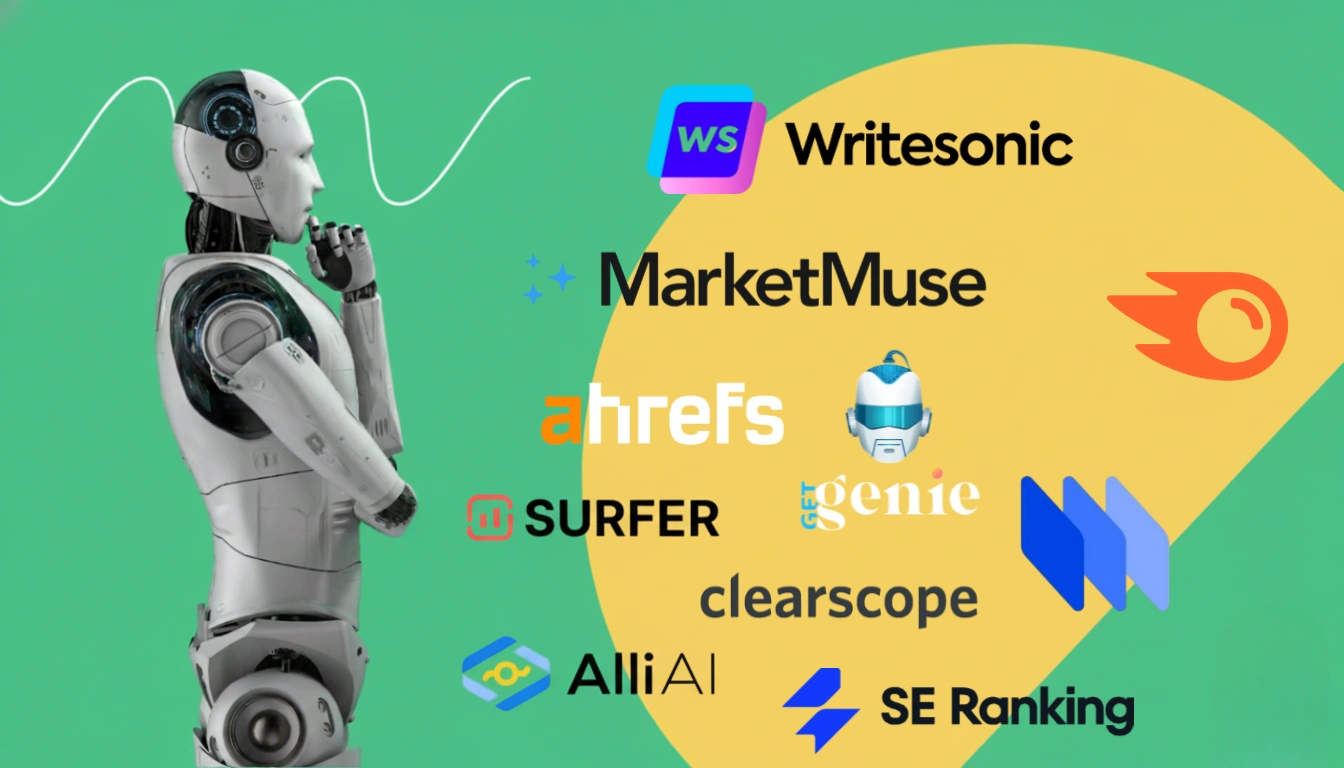
The SEO landscape is evolving rapidly, driven by AI advancements. With Google's AI Overviews appearing in 13% of U.S. searches and zero-click results rising to 69%, traditional ranking metrics are no longer enough. By 2026, Gartner predicts a 25% drop in organic traffic for sites that don't adapt to AI-driven search optimization.
AI-driven tools are now essential for SEO success, optimizing not just for Google’s algorithm but also for how AI engines like ChatGPT, Perplexity, Claude, and Google AI Overviews understand and cite content. These tools help marketers stay visible as AI takes center stage in the search ecosystem.
For B2B SaaS companies, especially those with long sales cycles, the right AI SEO tools are critical. They not only drive traffic but also attract qualified leads. Here are 10 AI search optimization tools that are reshaping SEO in 2026.
Why AI Search Optimization Matters in 2026
Search behavior has dramatically changed. AI summaries in search results have led to a 34-46% decline in click-through rates (CTR). As more searches result in zero-click answers, visibility in AI-generated content becomes crucial. Enterprise buyers now use multiple AI-powered discovery channels throughout their research journey, from ChatGPT to Perplexity, making AI optimization essential..
For B2B SaaS companies, AI optimization brings three benefits: maintaining organic visibility, building authority across AI-driven platforms, and generating qualified traffic from AI-assisted research.
1. Semrush AI SEO Toolkit
Semrush has transformed into an AI SEO ecosystem, monitoring brand visibility across AI engines like ChatGPT, Perplexity, and Google AI Overviews. The Copilot feature offers personalized SEO recommendations by analyzing site audit, backlinks, and keywords. Its Content Toolkit provides AI-optimized articles that account for both ranking and AI citability.
Key Features:
- AI visibility tracking
- Personalized recommendations from Copilot
- Keyword Magic Tool with semantic clustering
2. Surfer SEO
Surfer specializes in content optimization. The Content Editor analyzes top-ranking SERP results, offering NLP-based suggestions for keyword usage and content structure. Surfer’s Topical Map feature helps visualize topic clusters for building long-term authority. The Grow Flow assistant automatically identifies emerging keyword gaps.
Key Features:
- NLP-based content optimization
- Topical mapping for authority building
- AI Outline Generator
3. SE Ranking
SE Ranking integrates AI search visibility tracking directly into its platform, monitoring brand mentions across AI engines. Its traffic forecasting feature uses predictive modeling to adjust forecasts based on fluctuations in search volume and CTR. The platform also supports multi-market tracking with a database of 5.9 billion keywords.
Key Features:
- AI visibility tracking
- Traffic forecasting
- 5.9B keyword database
4. MarketMuse
MarketMuse excels in content strategy, using AI to identify content gaps and prioritize investments based on ROI. The First Draft feature generates AI-powered content briefs based on keyword research and competitor analysis. MarketMuse also offers competitive topic cluster mapping to uncover areas where competitors have a stronger presence.
Key Features:
- Topic modeling and content gap analysis
- ROI-based content prioritization
- Competitive intelligence for content expansion
5. Clearscope
Clearscope offers straightforward content optimization, using Google NLP integration for semantic analysis. The platform’s real-time grading system helps content teams ensure their content meets SEO standards without getting bogged down in excessive metrics.
Key Features:
- Google NLP integration for semantic analysis
- Real-time content grading
- Google Docs and WordPress integration
6. Siftly.ai
Siftly.ai is a next-generation AI-powered SEO platform designed to help brands track and optimize content visibility across AI-driven search engines. It focuses on improving AI content relevancy and semantic optimization by analyzing the way AI engines like ChatGPT and Perplexity interpret content. Siftly.ai's unique feature is its ability to predict AI citation patterns and help marketers adjust content to improve their chances of being included in AI-generated answers, ultimately driving more organic visibility.
Key Features:
- AI-driven content optimization for LLMs
- Predictive AI citation modeling to enhance content visibility
- Multi-channel AI tracking for visibility across various platforms
7. Alli AI
Alli AI removes the need for developer involvement in technical SEO. It allows real-time on-page changes without code deployment, helping teams with complex CMS platforms. The platform’s site-wide optimization rules enable bulk changes across large sites, making it valuable for enterprise teams.
Key Features:
- Real-time on-page SEO implementation
- Site-wide optimization rules for bulk changes
- Schema markup automation
8. Writesonic
Writesonic integrates multiple LLMs—GPT-4, Claude, Gemini—for content creation, research, and optimization. Its multi-model approach streamlines workflows, making it easier to generate content and research across multiple AI models simultaneously.
Key Features:
- Multi-model AI agent (GPT-4, Claude, Gemini)
- Real-time SEO data streaming
- End-to-end content workflow
9. Brand Radar by Ahrefs
Ahrefs is renowned for its backlink analysis and competitive intelligence. Its AI-powered intent classification and clustering help marketers organize keywords by funnel stage. The Site Audit feature identifies technical SEO issues that impact AI discoverability.
Key Features:
- Industry-leading backlink index
- AI-powered keyword intent classification
- Comprehensive site auditing
10. GetGenie
GetGenie integrates AI SEO directly into WordPress, combining keyword research, content generation, and optimization. Its semantic keyword research finds long-tail opportunities and helps optimize content for AI engines.
Key Features:
- Native WordPress integration
- NLP and semantic keyword research
- Real-time SEO scoring
How to Choose the Right AI Search Optimization Tool
When selecting an AI SEO platform, align the tool's capabilities with your marketing goals. Consider:
- Use Case: Do you need content optimization, technical SEO, or multi-channel tracking?
- AI-Specific Capabilities: Ensure the platform tracks visibility across AI engines like ChatGPT and Perplexity.
- Integration Requirements: Evaluate how well the tool integrates with your existing tech stack.
- Team Structure: Match tool sophistication with your team's capabilities.
- Pricing: Consider the total cost of ownership, including training and integration.
The Future of AI Search Optimization
The future of SEO will be shaped by the rise of conversational search, multi-modal content, and entity optimization. Zero-click search strategies and generative engine optimization will also become crucial as AI-driven research continues to dominate. Marketers who adapt early will have a competitive advantage in maintaining visibility in this AI-powered landscape.
Conclusion
As AI becomes more integrated into the search process, optimizing for AI engines is essential for maintaining visibility and attracting qualified traffic. By using the right tools, businesses can adapt to this new search landscape and stay ahead of the competition.

Subscribe to our blog

How can LeadWalnut help?
Related Articles

How AI Search Changes the Entire Marketing Funnel (Not Just Discovery)







